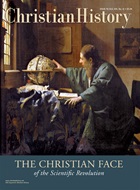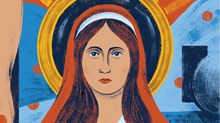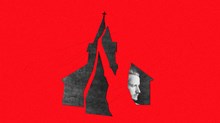The field of science and religion has experienced something of an academic boom in recent years-no doubt due in part to funding organizations such as the John Templeton Foundation. Most of the following resources go beyond the scientific revolution, but all have substantial material on that era.
Books
An accessible entree to questions about Biblical interpretation and the scientific revolution is Charles Hummel, The Galileo Connection (IVP, 1986). The book contains neatly interwoven mini-biographies of Copernicus, Galileo, Kepler, Newton, and Pascal, along with chapters on biblical interpretation and on flashpoints of modern science-faith conflict.
One of the best academic introductions to this area is still David Lindberg and Ronald Numbers, ed., God and Nature: Historical Essays on the Encounter Between Christianity and Science (University of California Press, 1986). Its fascinating essays are concise treatments of the relationship between Christianity and science in different periods and groups.
For readers looking for a synthesis of the issues at stake in this relationship, a good tour guide is Ian Barbour. Start with his Religion and Science: Historical and Contemporary Issues (Harpercollins, 1997), a significantly expanded version of the standard text, Religion in an Age of Science.
One of the most penetrating and readable authorities is John Hedley Brooke. See especially his Science and Religion: Some Historical Perspectives(Cambridge University Press, 1991) and his Reconstructing Nature: The Engagement of Science and Religion(Oxford University Press, 2000). The latter is an updating, with Geoffrey Cantor, of the author's Gifford Lectures. It traces the relationship of Christianity and science through history, busts myths, and contains a chapter on the modern relevance of the Galileo Affair.
David N. Livingstone, D. G. Hart, and Mark A. Noll have edited a volume on Evangelicals and Science in Historical Perspective, Religion in America Series (Oxford University Press, 2002). This contains a chapter by Brooke, "The History of Science and Religion: Some Evangelical Dimensions."
For a meticulously researched account of a single important issue, see Kenneth J. Howell, God's Two Books: Copernican Cosmology and Biblical Interpretation in Early Modern Science (University of Notre Dame, 2002).
Two fascinating reads are Dava Sobel's Galileo's Daughter (Penguin USA, 2000) and J. L. Heilbron, The Sun in the Church: Cathedrals as Solar Observatories(Harvard University Press, 1999), which tells how the Catholic church supported astronomical research through the design of four cathedrals built between 1650 and 1750.
Websites
The internet provides an abundance of materials on this topic, including much of high quality.
The Counterbalance Foundation provides a great introduction to the basic issues, historical, theological, and philosophical, at http://www.meta-library.net/. The site provides what amounts to an entire online course on the subject of science-faith interactions, complete with video clips of lectures and recommendations for further reading. Its wellwritten capsules feature the thought of several of the authors mentioned above and throughout this issue, among other respected experts.
An outstanding research tool is Richard S. Westfall's database, the "Catalog of the Scientific Community in the 16th and 17th centuries." The database contains 631 detailed, point-form biographies searchable on 20 fields, including-take note!-a field containing analyses, sometimes quite detailed, of the religious preferences of each scientist. This gem may be found at http://es.rice.edu/ES/humsoc/ Galileo/Catalog/catalog.html.
For a gateway to a variety of intellectually challenging (and theologically broad) online journals, organizations, and websites on science and faith, see the page of science and religion links at the John Templeton society website: http://www.templeton.org/links.asp#science.
A beguiling and visually rich browse through Galileo's life, thought, and times is Rice University's "Galileo Project" site, at http://es.rice.edu/ES/humsoc/Galileo/.
—Chris Armstrong
Copyright © 2002 by the author or Christianity Today/Christian History magazine.
Click here for reprint information on Christian History.

Support Our Work
Subscribe to CT for less than $4.25/month





























